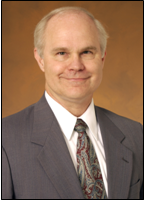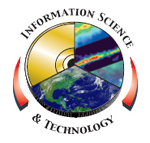
Please Note: The content on this page is not maintained after the colloquium event is completed. As such, some links may no longer be functional.
Larry Bergman 
IT in Robotic Space Exploration: Mars and Beyond
Wednesday, November 29, 2006
Building 3 Auditorium - 3:30 PM
(Refreshments at 3:00 PM)
Larry Bergman , will talk about IT in Robotic Space Exploration: Mars and Beyond. Just shy of 3 years ago – over 1000 Martian sols – the twin Mars exploration rovers Spirit and Opportunity bounced safely to land on the surface of the Red Planet. Since then, over 166,000 pictures have been streamed back to Earth providing a wealth of data on the Martian climate, geophysics, and mineralogy with the goal of answering the question “Did life once exist?” This presentation will describe some of the recent Mars missions, their engineering challenges, solutions, the resulting science discoveries that have occurred, and where advanced information technology and high performance computing in particular played important roles in supporting one of the most ambitious space exploration endeavors to date. Some concluding comments will be made on the emerging new challenges that will face robotic and human missions in the coming decades.
Dr. Larry Bergman is the Manager of the Mission Information Technology Research Program Office at the Jet Propulsion Laboratory (JPL), and is responsible for providing direction of basic mission-oriented IT research that ultimately will transition into interplanetary spacecraft, ground systems, engineering and design. Over his 35 year career in NASA, he has held a variety of flight project engineering roles, line and project management assignments, and also conducted research in fiber optics, photonic systems, computer networks, satellite networks, supercomputer systems, visualization systems, and HDTV systems.
A few career highlights include: contribution to the design and modeling of the interface circuits for the main Viking and Voyager on-board flight computers, Principal Engineer and Architect for the first space shuttle experiment to actively measure radiation effects on optical fibers, Project Engineer for JPL's first Supercomputer Center, co-Investigator for the DARPA/NSF CASA Metasupercomputer gigabit network testbed, PI for the first satellite based tele-astronomy experiment using the Keck telescope, and Project Manager of the HTMT petaflops supercompter concept study team involving more than a dozen institutions.
He has over 100 publications, six patents, has lectured at local universities, consulted to both the photonics and motion picture industries, and is a member of several engineering honor and professional societies, including IEEE, SMPTE, AES, and AFCEA. Among his numerous honors, he accepted the Radio Days Award from the Japanese Minister of Telecommunications for his leadership on the Japan-U.S. Trans-Pacific HDTV Experiment.
Dr. Bergman holds a B.S. degree (1973) from the California Polytechnic State University, San Luis Obispo, a M.S. degree (1974) from the California Institute of Technology (Caltech), Pasadena, and a Ph.D. degree (1983) from Chalmers University of Technology (CTH), Gothenburg, Sweden, all in electrical engineering. His Ph.D. thesis focused on the system design of multi-gigabit/sec fiber optic local area networks, and culminated in prototyping an experimental 5 Gbit/s fiber optic network testbed.
IS&T Colloquium Committee Host: Jim Fische
